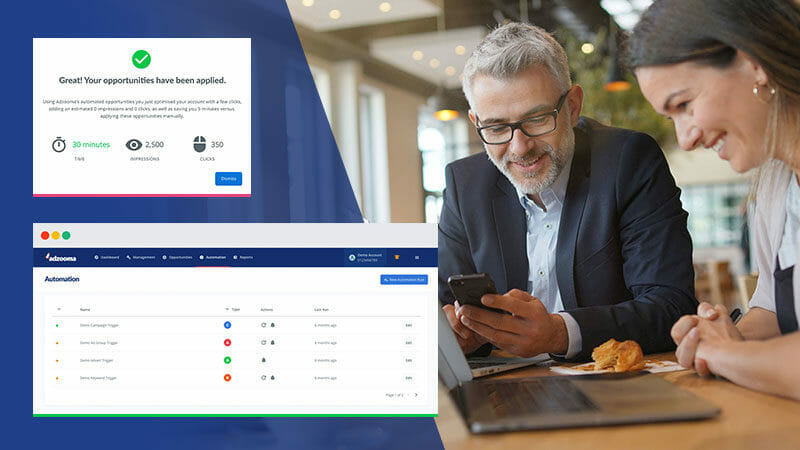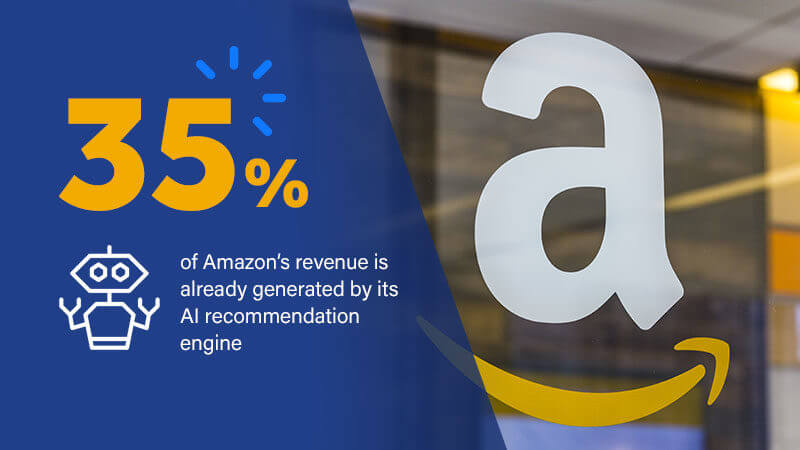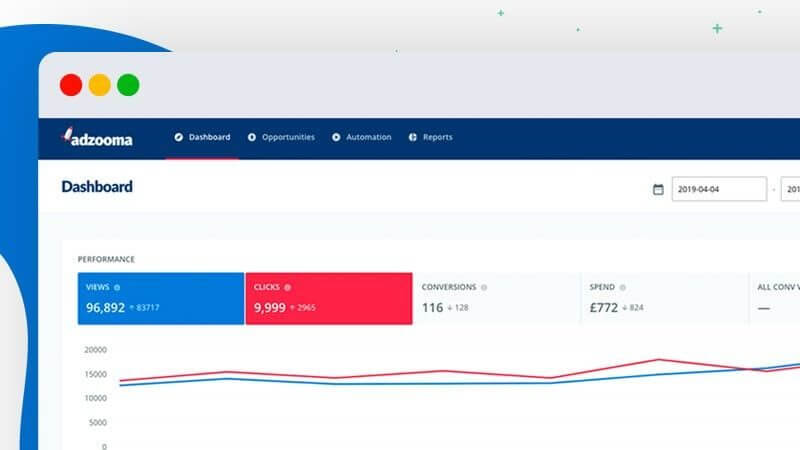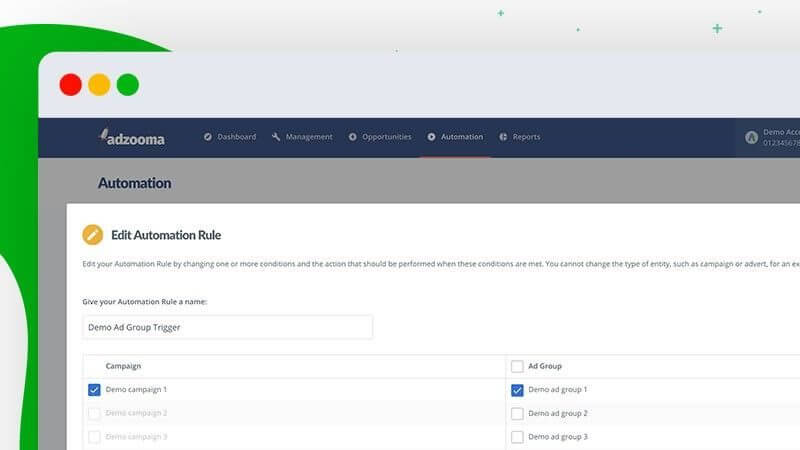Opinions expressed in this article are those of the sponsor. Search Engine Land neither confirms nor disputes any of the conclusions presented below.
AI for small business is no longer an option. It’s a necessity.
There has been no better time in history for small, disruptive businesses to win big. They just need to be smart.

Time for a fight
Let’s set the scene. It’s an English pub on the outskirts of London. It’s raining, obviously. There are four of us crowded around a small table.
Once upon a time, we worked together. We were teachers back then, and now we’re marketers.
Every so often, when the stars align, we all meet up.
There is little time for politeness. There is scant regard for nuance. We laugh, we joke, we play dice games. We find out who’s doing what and where. We drink, we argue and we learn from one another.
But on this particular night, things got lively. There was an unusual level of spice. And it all started with this.
“AI is expensive, and it can’t be trusted.”
Explosive AI potential
On one side, Jeff. He works in PPC marketing.
On the other, Richard, who works for a tech startup.
Let’s frame their argument. Research by PwC suggests that by 2030 the UK’s GDP could grow by 10% from AI alone. That’s an extra $289 billion. Globally, it’s closer to 13%.
Richard’s line of reasoning: if you fail to capitalize on this opportunity, others will.
Things started badly. Jeff suggested that, currently, the vast majority of businesses cannot benefit from AI. It’s a waste of their time. It will eventually be useful, but not yet.
Frankly, this is wrong. Richard told him as much. Regarding AI as an emerging trend – as something that’s in the pipeline and not ready to deploy yet – is a dangerous mistake.

35% of Amazon’s revenue is already generated by its AI recommendation engine. Spotify, Netflix and YouTube are champions in their field at using algorithms to get people to consume more content, more often and for longer periods of time.
Richard went one step further. Draining his pint, he said, “look, mate, it’s become black and white. Either you embrace AI, or you don’t. Either you seize your part of that money pot, or you don’t. Change your ways or get left in the dust.”
Shots fired, right?
“Okay,” Jeff said, “the big boys are using AI. But small businesses can’t. They don’t have the money to invest in it or the time to train their staff.”
Fair point. A Vistage study found that only 14% of small to medium businesses are using AI. 51% utilize it to assist in business operations; 46% to improve customer engagement.
And Jeff’s flawed line of reasoning is widespread. It goes like this: AI technology is meant for larger companies. It’s meant for Amazon, who can spend $22.6 billion globally on research & development.
But this isn’t true. And if the position isn’t challenged, then gigantic firms will grow bigger still and the opportunity gets lost.
Entry-level AI
Backpedalling, Jeff explained he already used rudimentary forms of AI to automate.
He used an Account Anomaly Detector – a freely available Google Ads script that detects and alerts you when an account is suddenly behaving differently. He’d set up a zero impressions emergency alarm too.
Fair enough. Any sane PPC manager will be automating at least some part of their Google Ads workflow. If they’re not using a platform to achieve this, they’re using scripts.
“Not good enough though,” Richard fired back.
There was a collective groan from the table.
Making things work
Richard doubled down.
“See, in a world of increasingly intrusive software, AI-driven automation software can actually let you relax. It can let you stop worrying about work. Tonight, already, I’ve seen you check accounts at least five times,” he said.
Jeff shifted in his seat.
“It’s Friday night,” Richard said. “You should be able to go to the pub with some friends and have a drink without doing that.”
This makes sense. Automation technology supplementing what you do is something I’ve argued for previously. Set up automation rules in a platform so that if something’s fishy, you get notified. Or pause the offending campaign, ad group or ad until you can diagnose and fix things later.
Now, all-encompassing marketing software exists. I had worked with Adobe Marketing Cloud at a retail & leisure industry giant. Richard had used Kenshoo.
They’re full, all-in-one packages that let you deliver a unified marketing strategy all under one banner. AI-driven software pushing insight, automation and scale.
“But,” Jeff complained, “the pricing is insane for a small business. We don’t have the budget, the time or the expertise to make that work.”
Zero alone time
However, there are better options out there for small businesses.
In fact, there’s a dizzying array of platforms to choose from when it comes to optimizing, automating and managing PPC campaigns at scale.
Now, full disclosure, these days I work for one of them: Adzooma.

And that allows me to say with full confidence: it isn’t acceptable for any PPC Manager in 2019 to work without some level of automation.
No human being should be handling the increasingly complex world of PPC alone. Nor should they be surrendering full control to a machine.
Instead, the best approach is to have a human being supported by a machine (or platform). This will win every single time.
Why do I know this?
Because it’s my job to know my industry inside out. I know what the competition is pushing; what issues they’re skating around. I know what they do well and what they don’t.
Provide smart PPC results quickly, one site will say. Pay a monthly subscription to download PPC scripts. Put things on autopilot. Optimize everything automatically.
But, in reality, you want to automate parts of your workflow while retaining control of the big strategic decisions.
You’re looking to save time and get more from your budget. You’re looking for smarter, more effective advertising. But, most importantly of all, you’re still the boss.
Control is king
And that was Jeff’s issue. When pressed, he owned up.
“Yeah, fair enough,” he admitted. “I’m worried about losing control. I’m worried about a platform making a decision on my behalf that’s wrong. I don’t trust it.”
But that just doesn’t wash.
Adzooma’s automation feature lets you set up simple rules. It can pause adverts if your Quality Score falls too low. It can pause whatever you need when impressions, clicks, conversions, spend, CPC or CPA aren’t where you need them to be. Or, alternatively, notify you.

This eliminates the brutal time cost of manually checking everything. It prevents someone like Jeff wasting their time.
It also allows you to scale. And this is precisely how small businesses can capitalize on AI-driven platforms like Adzooma.
It’s precisely how people like Jeff can claim their part of that AI money pot.
The Opportunity Engine
But it’s not just about automation.
Adzooma’s Opportunity Engine is our name for a wide range of recommendations that can optimize accounts.
Our platform constantly analyzes your data and presents ad managers with opportunities. They can review them and apply most with a single click.

This allows small businesses to do two things.
One, it allows a small business to run successful PPC campaigns without having a dedicated, technical PPC manager on the payroll.
Two, it allows a small business agency to scale up their operations – which is, incidentally, why we built Adzooma in the beginning.
We didn’t want our account managers spending hours and hours performing routine, manual work on every account. We wanted to give them more time to acquire and onboard new clients.
Avoiding the woe
Look, you can be like Jeff. You can do manual and supplement your workflow with scripts. Here are 162 Google Ads scripts that can supercharge your campaigns.
Here’s one of the very best. It’s a script to find the best text for new ads using an n-gram analysis. The original post, shared by Daniel Gilbert, concerned finding the best and worst search queries. Regardless of your setup, you must try this.
But, realistically, you need a platform behind you to get to the next level.
It would be a ludicrous lie on my part to tell you that any platform can replace a smart, strategic, business-oriented human being. But woe betide any human being delivering success without a powerful Adzooma-esque machine whirring away behind them.
David, not Goliath
Do not fall into the dangerous trap of thinking you’re too small for AI.
Small, disruptive, innovative businesses have been important since the dawn of capitalism. The little guys don’t always win, but they do push the engine along. And, when they’re smart, they win big. Very big.
The potential is ridiculous.
You don’t need to become an AI expert, and you don’t need to hire one. You need to identify and select platforms, like Adzooma, that has AI embedded into them and works for the goals you want to achieve.
If you want to capitalize on the AI boom, you need to get started right now. Optimize, automate and win.
Related stories
New on Search Engine Land
